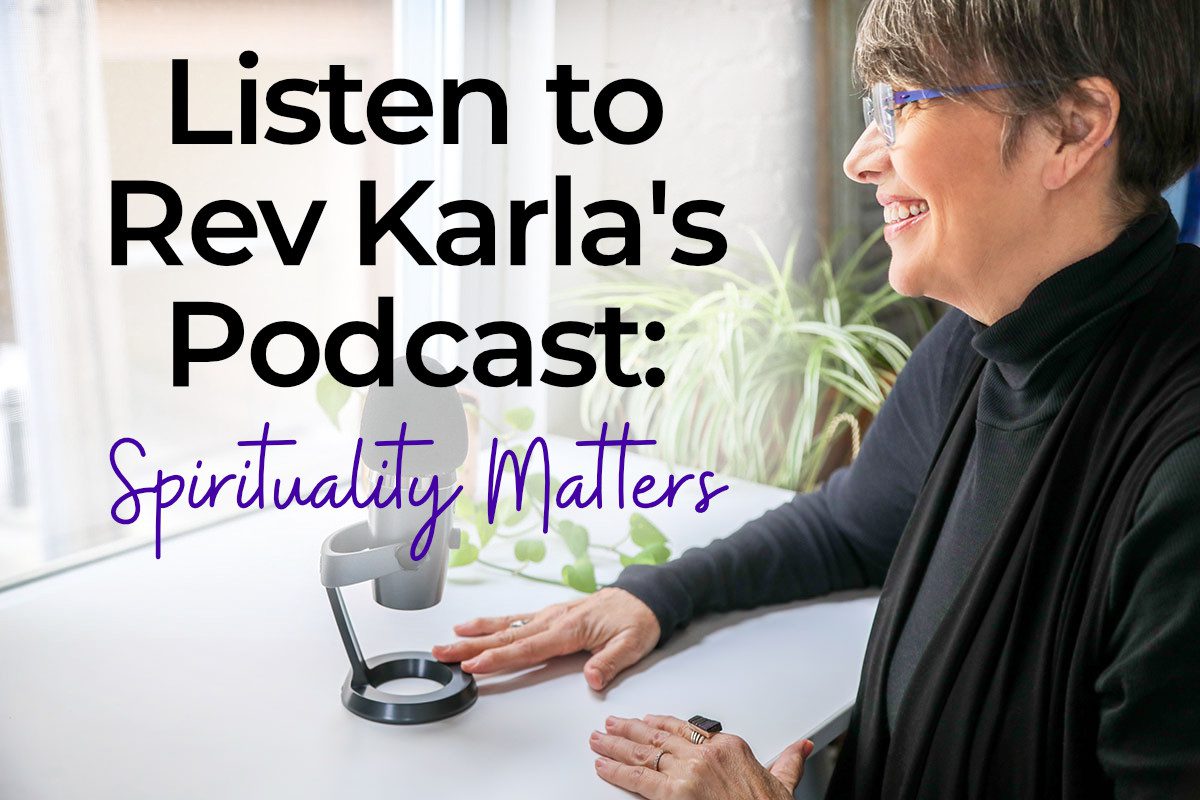The Spirituality of Empathy
Empathy seems to be a popular subject these days. But what exactly does empathy mean, and how does it show up in the world?
It is important to differentiate empathy from sympathy because the difference is significant.
Empathy and sympathy are considered to be two of the emotions available to humans, making their distinction even more important to understand. Empathy means that we understand the feelings of another, because we may be experiencing those feelings as if they are happening to us. Another way of saying this is whatever experience, in particular grief and sorrow, those same feelings may permeate through us as if we are experiencing them.
Sympathy means we may feel compassion toward someone who is hurting or who has suffered a loss. Both empathy and sympathy may prompt you to move toward the individual to offer relief or comfort, but empathy is felt so deeply within your core that the experience of living the loss through the one who is suffering may leave those of us who are connected to our empathy -- also known as an empath -- emotionally drained and oftentimes forever changed.
Because empathy receives a great deal of attention and is often written about — especially how empaths must protect themselves from absorbing too much of another’s feelings — we are beginning to understand how important empathy is to a tolerant and compassionate society. Given the deluge of articles and focus on the unique qualities of an empath, one could assume that empathy has just recently been identified as a human emotion.
Empaths, however, are not as unique as we are led to believe, and empathy is certainly not a new emotion. The road of human history is paved with poignant stories of empaths who heard the cries and pains of others and moved toward that pain instead of running from it. Gandhi, Mandela, Mother Teresa — no doubt you have heard of them and the work they have done that literally changed the world.
But what about Jane Goodall and her work with chimpanzees, work that has revolutionized how we study primates and how we understand them? Or Dian Fossey, who was murdered while living among the gorillas in Rwanda? Or Harriet Tubman, who escaped slavery only to return countless times to rescue other enslaved Black people? Perhaps you had heard of all of these empaths? But what of Witold Pilecki, a Polish soldier who volunteered to be captured by German forces to uncover the atrocities occurring at Auschwitz during World War II?
These are just a few of the millions of known empaths throughout history, many of whom will never be recognized for their courage and compassion. Now the difference between empathy and sympathy is laid bare — sympathy sends a card, while empathy sends themselves.
The current movement to protect one’s empathic emotions from overwhelming a person may be distorting the reality of what it means to be an empath. While it is important that we don’t become overwhelmed when dealing with others’ life crises, empathy is crucial if we are to do more than extend “thoughts and prayers.” This is where the shift to understanding empathy as deeply sacred work that emanates from the soul begins to emerge.
The truth is that we are all empaths — we are either awakened and connected to our empathic selves, or we are not (although there may be some psychological conditions that limit one’s ability to fully connect with empathic emotions). Yes, it is possible to be overly empathic, just as it is possible to be completely detached from the pain of others. I would much rather assist overly empathic humans in balancing their empathy than attempt to awaken empathically detached humans — for the former is wide awake, and the latter is sound asleep and doesn’t even know it.
Just as with any other emotion, empathy lives within us as part of our human experience.
As such, there may be a multitude of reasons a human may have low empathy. Humans on the autism spectrum disorder tend to show less empathy — at least in ways that we typically see it displayed. We should never assume we understand the inner workings of any human nor conclude that human emotion is completely understood by how we experience those emotions. Chronic illness and societal or family pressures also can wreak havoc on a human’s capacity to be empathic.
Every one of our human emotions can build a bridge to other humans. We can laugh with someone, be angry at someone or cry for someone without knowing their story. That could be the reason empathy is unseen in some — it requires that we do more than experience an emotion.
We build a bridge to the hurting where we willingly and lovingly meet them, offering a part of our heart and soul.
Then neither is ever the same.


